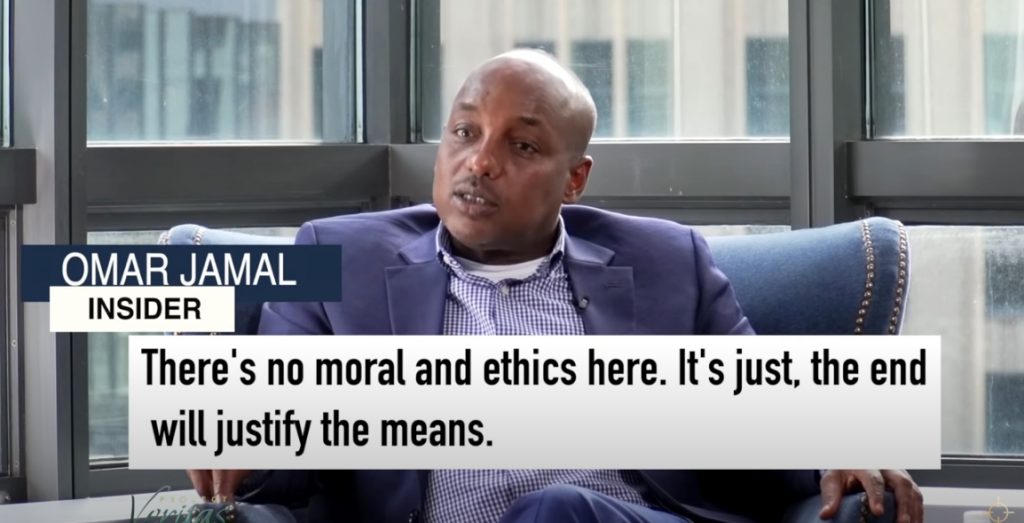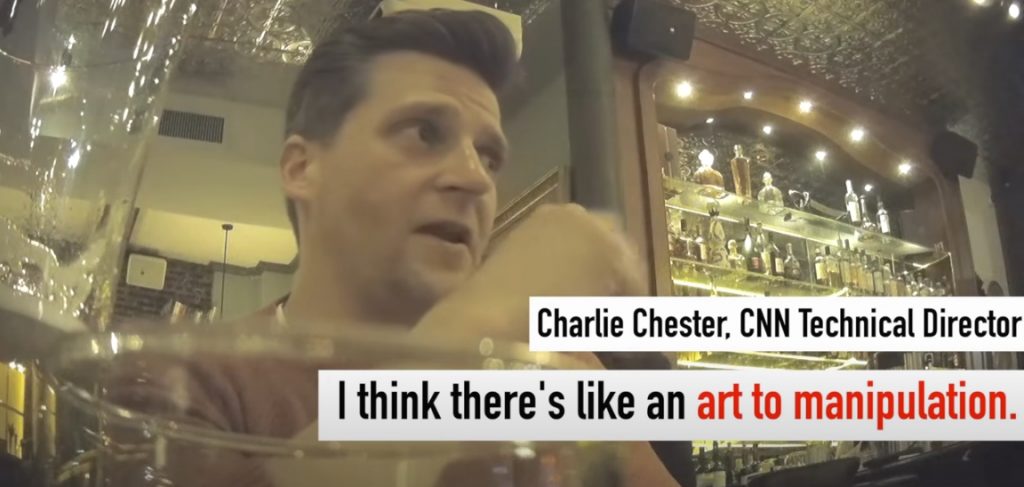Most of the mainstream media tend to view media activist James O’Keefe and fellow undercover journalists at Project Veritas as annoying pests. In fact, O’Keefe is a silent assassin.
After years of mostly limiting himself to defending against lawsuits brought by others and forcing media outlets to issue retractions about their often-slanderous coverage of Project Veritas, O’Keefe has suddenly begun filing defamation lawsuits. I believe he will win them.
It began in October of last year when the New York Times published a news article claiming that Project Veritas’ undercover expose of an illegal ballot-harvesting scheme in Minneapolis, Minnesota was a “coordinated disinformation campaign.” In its story, the New York Times reporters claimed Project Veritas relied on “unidentified sources” and that the videos showed no actual evidence of any ballot harvesting.
But the undercover videos provided by Project Veritas identifies multiple persons by name and image which clearly discuss the fact what they are doing harvesting these ballots are against the law in Minnesota. Veritas also interviewed a former insider of the ballot harvesting scheme on camera, a whistleblower named Omar Jamal.
 Rep. Illhan Omar ballot-harvesting whistleblower Omar Jamal talks to Project Veritas in a video interview.
Rep. Illhan Omar ballot-harvesting whistleblower Omar Jamal talks to Project Veritas in a video interview.
After the New York Times refused to issue a retraction, Project Veritas filed a lawsuit alleging defamation and is seeking actual and punitive damages.
“The New York Times made this false claim saying our story relied solely on unidentified sources and showed no evidence of ballot harvesting. This is absolute hogwash, dishonest and libelous,” said Project Veritas President James O’Keefe in a video he made specifically to announce the filing of the lawsuit.
There was a recent development in the case when the presiding judge denied the New York Times motion to dismiss the Project Veritas lawsuit. Instead of dismissing the case, New York State Supreme Court Judge Charles Wood ruled that Project Veritas will get a chance to prove defamation in court. The attempted defense offered by the New York Times failed to impress the judge.
As Brit Hume of Fox News put it in a tweet as he linked a column by law Professor Jonathan Turley on the matter, “One of the remarkable things about this case is that not only did the New York Times acknowledge their reporters injected their opinions into a news story, they made that part of their defense!”
But as that latest development in the lawsuit against the New York Times was going on, Project Veritas was in the midst of rolling out yet another undercover sting, this one targeting CNN.
In a series of highly damaging and embarrassing undercover videos, Project Veritas showed top CNN brass admitting on camera that the network doesn’t do real news but instead promotes propaganda, and their biggest propaganda project was getting former President Trump removed from office.
In one of the videos, a CNN technical director named Charlie Chester boasts that the network has perfected ‘the art of manipulation’ and is using it to ‘change the world’.
 Charlie Chester CNN tech director PV undercover video
Charlie Chester CNN tech director PV undercover video
These latest CNN videos were apparently the final straw. They were too revealing and too damaging to a network already drowning in a “Trump Slump.” Something had to be done to reduce O’Keefe’s visibility. And Twitter is the social media platform in which Veritas’ undercover stings have been most effectively spread.
Although O’Keefe and Project Veritas have been suspended briefly from Twitter several times in the past, shortly after the debut of the latest CNN video series, Twitter announced it was banning them permanently. In the statement announcing the double ban of both O’Keefe’s personal account and the Project Veritas account, Twitter claimed O’Keefe had violated the social media companies’ rules on spam and platform manipulation.
A Twitter spokesman told Forbes Magazine that O’Keefe had been running multiple fake accounts to “artificially amplify or disrupt conversations,” although Forbes reporter Joe Walsh rightly notes that Twitter failed to provide any details about a specific infraction of the rules.
As it so happens Twitter will get its chance to discuss in court the specific details of how O’Keefe was supposedly violating the rules by running multiple fake accounts because he filed a defamation lawsuit against Twitter on April 19.
But O’Keefe still wasn’t done yet. When CNN anchor Ana Cabera said on the air that Twitter had permanently banned O’Keefe for ‘spreading misinformation,’ O’Keefe’s response was to file his third lawsuit in the past 6 months for defamation. O’Keefe is now suing the New York Times, Twitter, and CNN if you're keeping count.
But that’s not all. Last week Project Veritas rolled out a campy yet effective music video that ended with the announcement of a new branch of the organization, called Project Veritas Legal, created to allow others to sue the mainstream media for slander and defamation.
O’Keefe clearly intends to bury the Fake News media with an avalanche of lawsuits brought by the people they have spent years getting away with defaming in the service of their never-ending propaganda.
Over the years a legion of people have talked about suing the news media for blatant cases of journalistic malpractice. Others have declared that Big Tech should be sued for its censorship and de-platforming of Conservatives. But nobody ever really did anything. Well, O’Keefe is done talking about it. He’s making it happen.
Project Veritas Legal’s First Lawsuit: Jesse Hicks
It appears that many of these media organizations that have been engaging in regular journalistic malpractice over the years of the Trump Presidency attempted to cover themselves from legal liability by making heavy use of "freelance journalists": independent contractors hired by the story who are not permanent employees.
This allows the media outlets to print the most irresponsible and defamatory allegations against anyone, and if later exposed, the editors can say, "well, that person doesn't really work for us; they are freelance. We’re not liable. You’re problem with the freelancer, not us.” It appears to me that many of these freelance journalists have been using extremely questionable methods in their reporting while giving the media outlets that publish their work plausible deniability.
This could be why O'Keefe is going after freelancer Jesse Hicks as the very first lawsuit filed by Project Veritas Legal. O'Keefe claims that Hicks stupidly used his real phone number while pretending to be a Project Veritas employee as he attempted to obtain inside information. It is illegal to impersonate someone to trick people into giving you publicly unavailable information in many states.
If O’Keefe can prove this in court, the question that arises is what if Hicks used the same kind of shady tactics for stories he wrote for the many media outlets that published his work? Could they be legally liable for publishing information obtained by fraud? Does simply exclaiming “He was only a freelancer!” absolve the editors of all responsibility?
O’Keefe Isn’t After Money or A Return to Anonymity
O'Keefe has stated many times he has no intention of settling any of these lawsuits he has filed. The problem with settling a defamation lawsuit is that certain conditions must be agreed to for the settlement to be reached. Never publicly revealing what those conditions are is a key part of the settlement.
This was the case with Nicholas Sandmann, the young man defamed by multiple media outlets in the Covington Catholic case. The conditions of the settlement the Sandmann's reached with CNN and The Washington Post were never be made public. While settling, both CNN and the Post stridently repeated there was no wrongdoing on their part; they were making no public admission of any defamation or slander whatsoever; they were settling merely to make the case go away.
O'Keefe has made numerous public statements that he will not settle any of these defamation cases. His goal is a jury trial and a verdict. He’s not interested in shopping conditions with Twitter, or CNN, or the New York Times as he seeks a payout.
While the Sandmann family understandably wanted out of the public eye just as quickly as that could be achieved, James O'Keefe and Project Veritas most certainly do not want to be out of the public eye. Far from it. They thrive on publicity. And as these lawsuits go forward, they will be getting plenty of it. I wish them all the success in the world.


